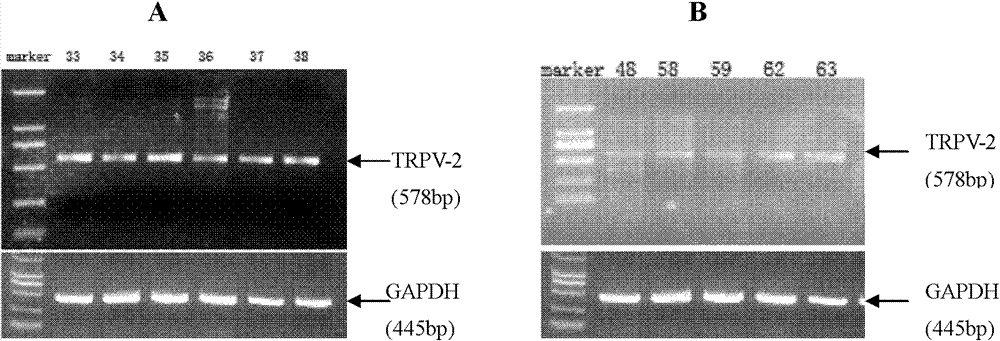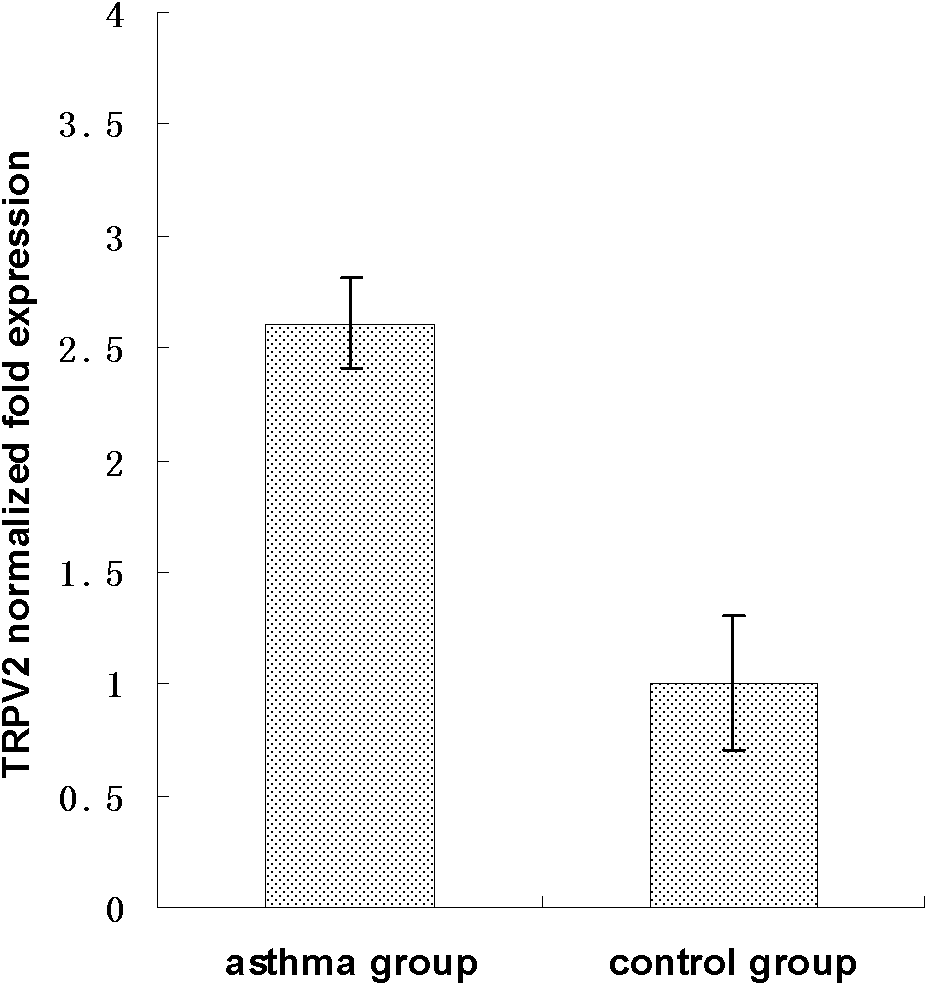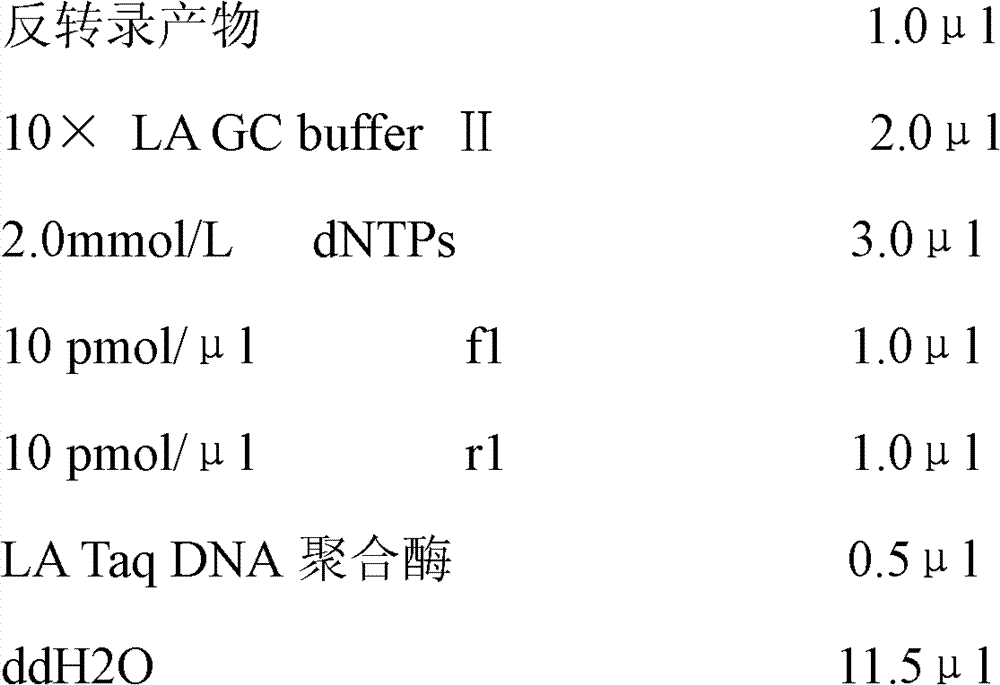Marker for detecting pediatric asthma
A technology of children's asthma and markers, which is applied in the field of markers for children's asthma detection, can solve the problems of unknown wheezing in children, difficulty in bronchial provocation test, lack of diagnostic methods and index gold standards, etc., to achieve rapid detection, The effect of high sensitivity
- Summary
- Abstract
- Description
- Claims
- Application Information
AI Technical Summary
Problems solved by technology
Method used
Image
Examples
Embodiment 1
[0017] Embodiment 1: the selection of children with asthma and contrast
[0018] According to the diagnostic criteria of the guidelines for the diagnosis and prevention of bronchial asthma in children (revised in 2008), in the Respiratory Department of Children's Hospital, clinicians selected children with asthma who met the criteria, aged ≤15 years old, a total of 60 children. A total of 60 healthy children matched in age, sex, and asthma group were selected as the control group.
[0019] The determination of cases depends on the age of the child and selects different criteria:
[0020] Diagnostic criteria for asthma in infants and young children: (1) age < 3 years old, wheezing attack ≥ 3 times; (2) wheezing sound heard in both lungs and expiratory phase during the attack, and the expiratory phase is prolonged; (3) having an atopic constitution, Such as allergic eczema, allergic rhinitis, etc.; (4) parents have a history of asthma or other allergies; (5) other diseases that...
Embodiment 2
[0022] Example 2: Collection of blood samples and detection of biological indicators
[0023] The venous blood of the research subjects was drawn to detect the total IgE in the serum, and this part of the detection work was assisted by the hospital.
[0024] Analytical method: Western blot method was used to quantitatively detect the total IgE level in serum.
[0025] Specific operation method: extract 1ml of venous blood from the patient, separate the serum, take 250 μL and incubate with the nitrocellulose membrane adsorbed with specific allergens in the reaction tank at room temperature for 45 minutes, add biotin-labeled anti-human IgE antibody after washing, and incubate at room temperature After 45 minutes, the unbound secondary antibody was eluted, and streptavidin conjugated with alkaline phosphatase was added, and then incubated at room temperature for 20 minutes, the unbound enzyme was washed away, and the substrate was added to develop color. All incubations were don...
Embodiment 3
[0026] Example 3: Extract RNA
[0027] 3ml of venous blood was extracted from the research subjects, anticoagulated with EDTA to extract RNA. For the extraction method of RNA, please refer to the instruction manual of the ultra-pure total RNA rapid extraction kit produced by Gaining Biotechnology Co., Ltd. After the RNA was extracted from each blood sample, the integrity of the extracted RNA was detected by agarose gel electrophoresis, and its concentration was detected by an ultraviolet spectrophotometer. Calculate the amount of reverse transcription required for 3 μg.
PUM
| Property | Measurement | Unit |
|---|---|---|
| strength | aaaaa | aaaaa |
Abstract
Description
Claims
Application Information
 Login to View More
Login to View More - R&D
- Intellectual Property
- Life Sciences
- Materials
- Tech Scout
- Unparalleled Data Quality
- Higher Quality Content
- 60% Fewer Hallucinations
Browse by: Latest US Patents, China's latest patents, Technical Efficacy Thesaurus, Application Domain, Technology Topic, Popular Technical Reports.
© 2025 PatSnap. All rights reserved.Legal|Privacy policy|Modern Slavery Act Transparency Statement|Sitemap|About US| Contact US: help@patsnap.com



